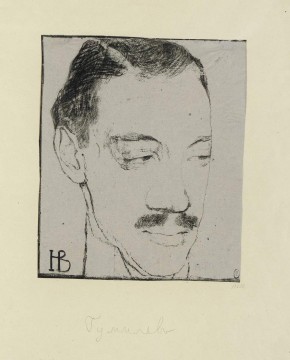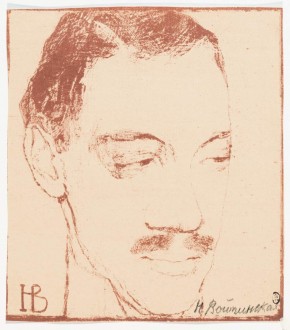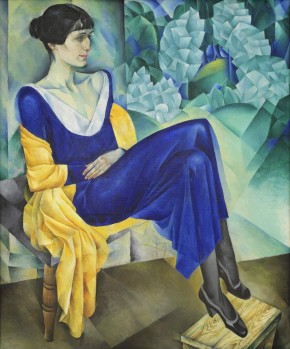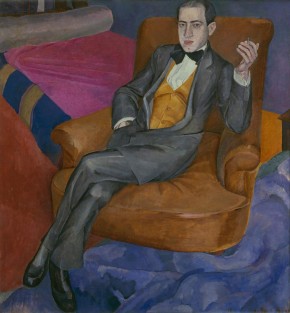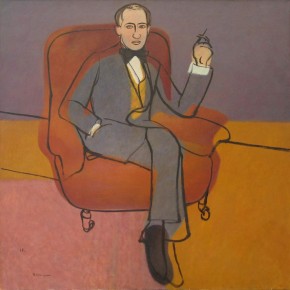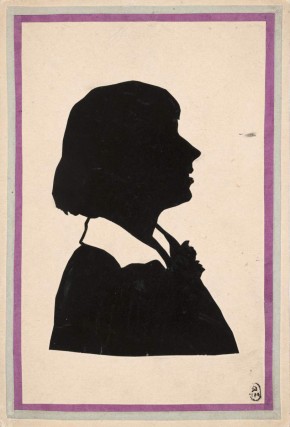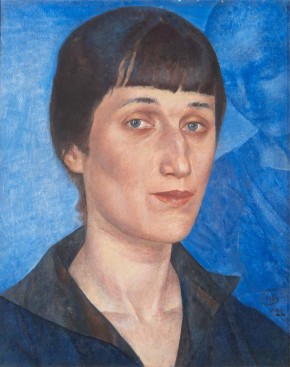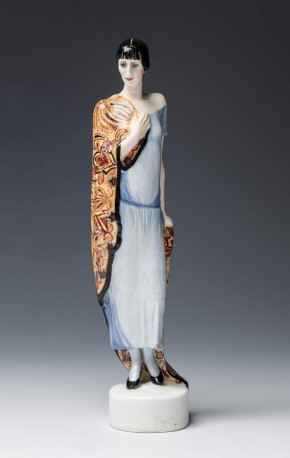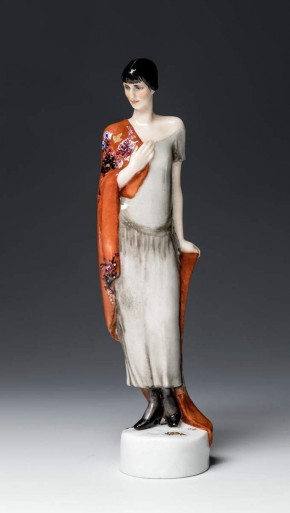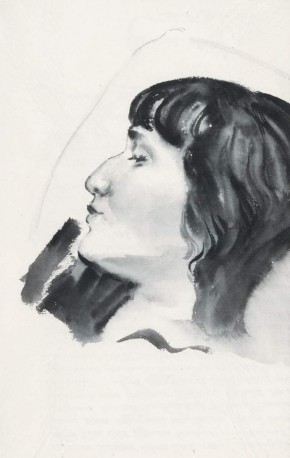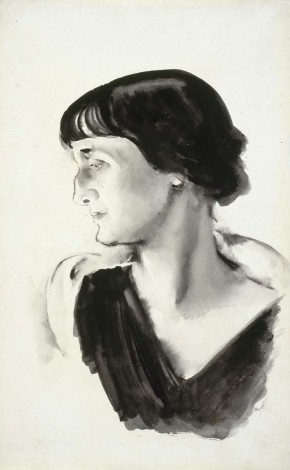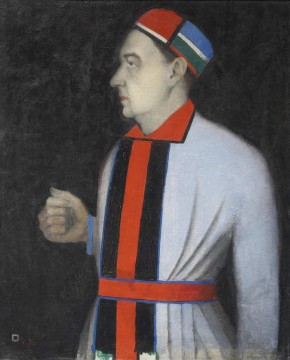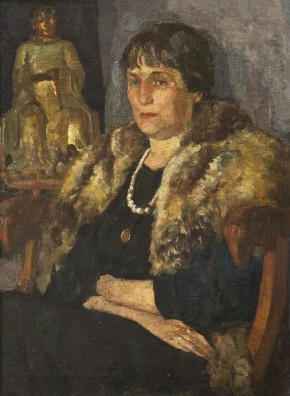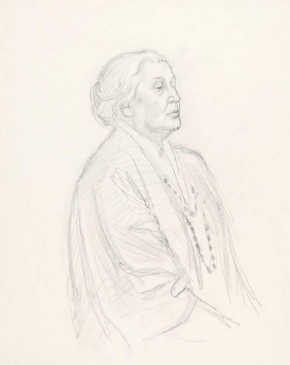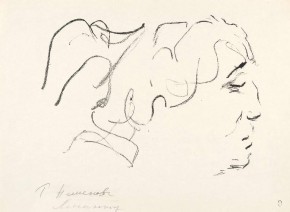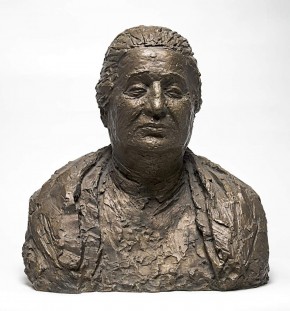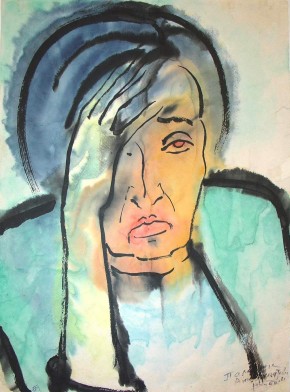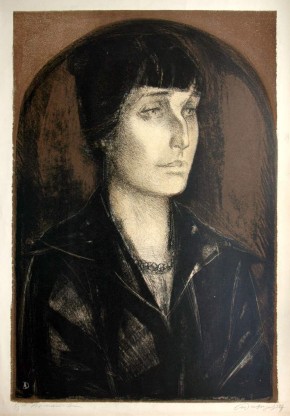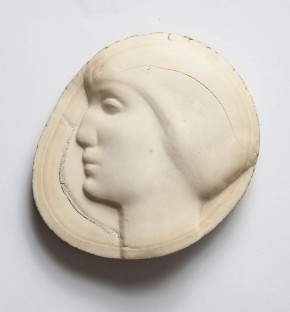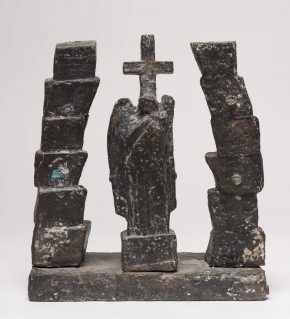Anna Akhmatova and her Contemporaries
Anna Akhmatova (nee Gorenko, 1889-1966) was a great Russian poet, translator and literary critic, one of the most significant figures of Russian literature of the XX century. She considered Akhmat Khan of the Horde to be her maternal ancestor, on whose behalf she later formed her pseudonym.
Anna Akhmatova has lived a long enough life. The trials that befell Russia in the twentieth century directly affected both its fate and poetic creativity. Famous already at the very beginning of the 1910s, Akhmatova attracted the attention of many not only with her poems. Her unusual, memorable appearance, manner of bearing and dressing turned into a style created by Akhmatova. It is no coincidence that in the poems of various poets dedicated to her, not only worship of her talent is expressed, but also admiration for her appearance. It is quite understandable that Akhmatova attracted artists. She was painted, sketched and sculpted by many. Among them are outstanding masters such as Amedeo Modigliani, Nathan Altman, Kuzma Petrov-Vodkin and others.
The collection of the Russian Museum contains lifetime portraits of Akhmatova and the men around her (Nikolai Gumilev, Lev Lurie, Nikolai Punin), executed by remarkable masters of the first half of the twentieth century — Nathan Altman, Kuzma Petrov-Vodkin, Peter Miturich, Kazimir Malevich and others.
CHRONOLOGY OF THE LIFE AND WORKS OF ANNA AKHMATOVA
1889, 23 June
Born in the village of Bolshoi Fontan near Odessa into the family of a retired naval mechanical engineer of the hereditary nobility. Akhmatova’s real surname was Gorenko, her married name Gumilyov.
1890–1905
Lives in Tsarskoye Selo near Petersburg. Studies at the Tsarskoye Selo (Mariinskaya) Girls’ Gymnasium. Spends her holidays on the shores of Streletskaya Bay near Sevastopol.
1903
Meets Nikolai Gumilyov (1886–1921).
1906–1907
Studies in the graduating class of the Fundukleyevskaya Gymnasium in Kiev.
1908–1909
Studies in the law department of the Kiev Higher Women’s Courses.
1910, April
Marries Nikolai Gumilyov.
1910–1912
Visits Paris twice; travels to Italy. Her impressions from these trips and a cquaintance with Amedeo Modig - liani in Paris will significantly influence her work. Mo - digliani does several pencil portraits of Akhmatova.
1912
October: Birth of her son Lev (1912–1992), later to become a historian, geographer and specialist in the ethnogenesis of the peoples of Eurasia. Her first book of verse, Evening, is published by the Guild of Poets. 300 copies are printed.
1914
The poetry collection Rosary is published by Hyperborea in a printing of 1,000 copies. By 1923 it will go through eight republications.
1917
Her third book of verse, White Flock, is published by Hyperborea in a printing of 2,000 copies.
1918, August
Divorces Nikolai Gumilyov and marries Assyriologist Vladimir Shileyko (1891–1930).
1921
The verse collection Wayside Grass (1,000 copies) is published by Petropolis Publishers. Separates from Shileyko. In August Nikolai Gumilyov is arrested. Three weeks later he is executed.
1922
The verse collection Anno Domini MCMXXI is published by Petropolis Publishers. Marries art critic Nikolai Punin (1888–1953).
1923–1934
Goes practically unpublished.
1924 and onwards
Lives in the Fountain House (former palace of the Counts Sheremetev) in Leningrad.
1935
Nikolai Punin and Lev Gumilyov are arrested but freed three weeks later.
1935–1940
Writes the poem “Requiem”.
1938
Second arrest of Akhmatova’s son Lev Gumilyov.
1939
Accepted into the Union of Soviet Writers.
1940
The new verse collection From Six Books is published.
1941
In Leningrad at the outbreak of war.
In late September, evacuated to Moscow on the insistence of her doctors, then to Chistopol near Kazan, and from there to Tashkent.
1944, May
Is among the first returnees to Leningrad from evacuation.
1946
Resolution of 14 August 1946 regarding the journals Zvezda and Leningrad, in which Akhmatova and Mikhail Zoshchenko are subjected to harsh criticism. Excluded from the Union of Soviet Writers.
1949
Nikolai Punin is arrested. Lev Gumilyov is arrested for the third time.
1950
Writes the poetry cycle Glory to Peace!
1951, 19 January
Readmitted to the Union of Soviet Writers.
1954, December
Participates in the 2nd Congress of the Union of Soviet Writers.
1956
Lev Gumilyov is rehabilitated and returns from confinement.
1958
The collection Poems is published.
1962
Finishes “Poem Without a Hero”, a labour of twentytwo years.
1964
Awarded the Etna-Taormina Prize in Italy.
1965
Receives a doctorate honoris causa from Oxford University. The collection The Flight of Time is published.
1966, 5 March
Dies in Domodedovo near Moscow. Buried in the settlement of Komarovo near Leningrad (now Petersburg).
Catalogue of exhibit in Málaga «Anna Akhmatova. Poetry and life». 2019. P. 46.
